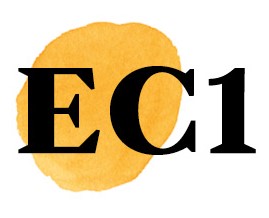In 2022, too many people in Islington put the wrong thing in the wrong bin again
By Sonja Tutty, Data Reporter

More than 1,500 tonnes of waste from Islington households were wrongly placed in recycling bins last year, new figures show.
The Local Government Association said households and councils have worked hard to increase the amount of waste recycled, but are held back by manufacturers using unrecyclable packaging.
Rejected waste material can be turned away from recycling due to contamination by water, dirt, or chemical treatments such as preservatives or paint.
Figures from the Department for Environment Food and Rural Affairs show an estimated 1,547 tonnes of household waste were rejected from being recycled after being placed in the wrong bin in the year to April 2022.
It is down from 1,929 tonnes the year before but up from 724 tonnes in 2014-15 when local records of rejects began.
Across England, 6.4% of rubbish sent to be recycled in 2021-22 was rejected.
Last year’s rejects in Islington accounted for 8.1% of the 19,091 tonnes of household waste sent for recycling.
An LGA spokesperson said households have made a “real shift” to ensure they are recycling as much as possible while councils work hard to share information on what can be recycled.
They said: “However, the manufacturers of plastic packaging products are still continuing to create and sell packaging that cannot be recycled and will be put in the recycling bin by people in good faith.
“The burden then falls on councils to not only collect it and dispose of it, but to pay the extra cost of disposing of it.”
They added councils are trying to achieve net zero with “one hand tied behind their back” as manufacturers continue to produce plastic that cannot be disposed of sustainably.
The national increase in rejected material reported across England is also likely due to China’s ban on all solid waste imports and effects of the Covid-19 pandemic.
The figures show 44.1% of household waste in England was recycled in 2021-22 – up slightly from 43.8% the year before.
In Islington, 17,544 tonnes of household waste were recycled – 30.1% of all rubbish. It was down from a recycling rate of 31.3% in 2020-21.
A Defra spokesperson said it wants to recycle and reuse more waste, and support households to do so.
They said, “There was an increase in rejected material reported by local authorities in the wake of the pandemic but we have since set a suite of targets to reduce different types of waste, including plastic, glass, metal, paper and food by 2028 through our landmark Environmental Improvement Plan.”
The plan aims to ban the supply of single-use plastics later this year, make some businesses pay to recycle their own packaging by 2024, and introduce a deposit return scheme for plastic and metal drinks containers in 2025.









